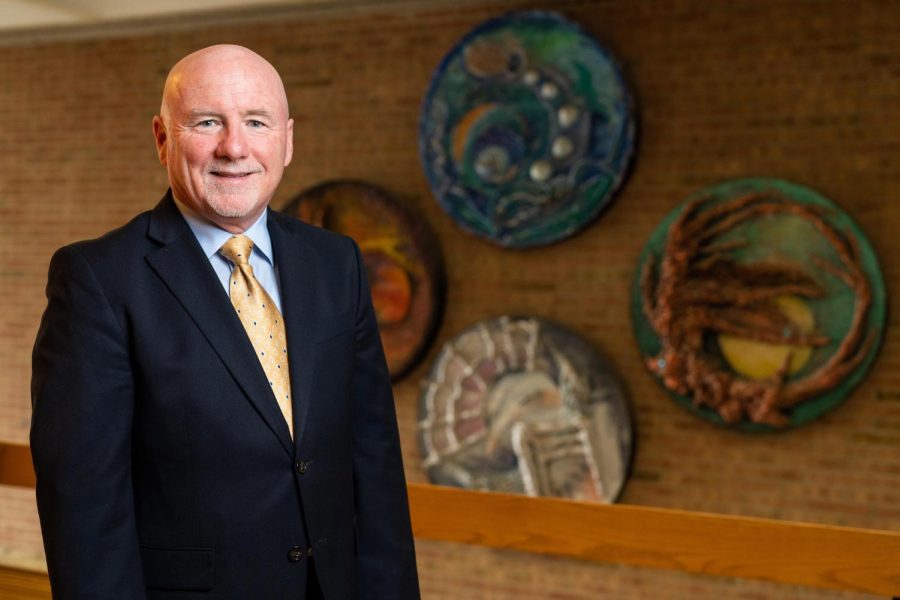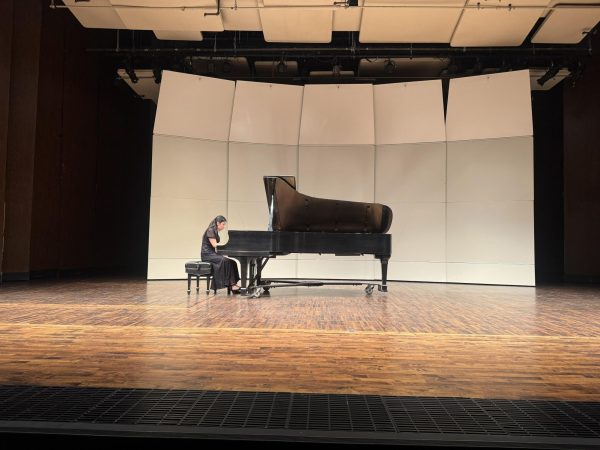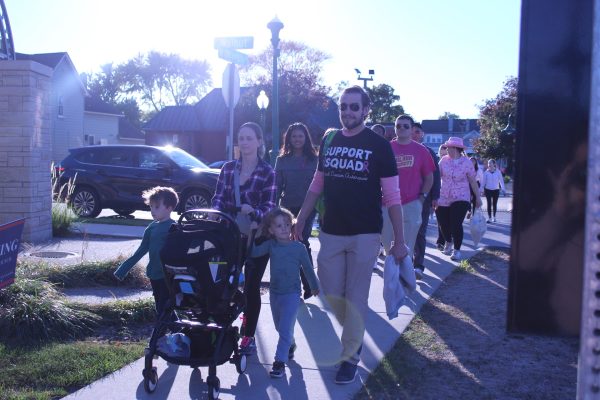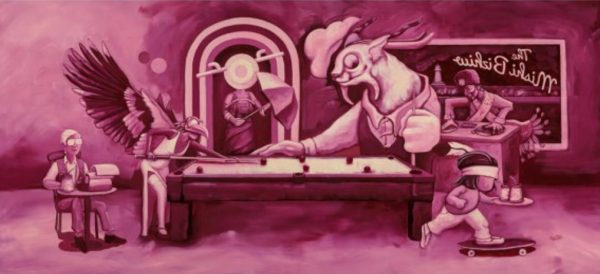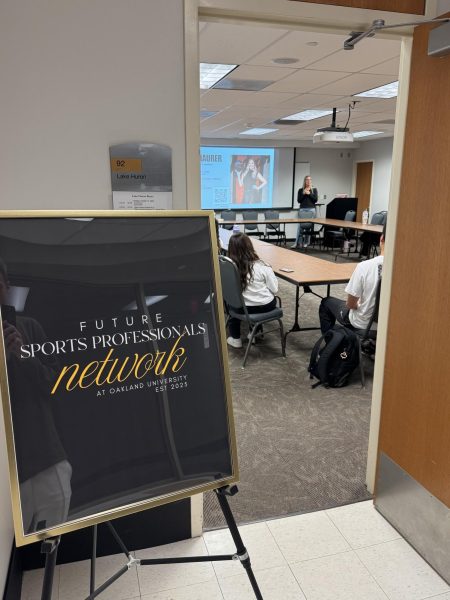CAS Dean delays retirement to plan for fall semester
Kevin Corcoran, dean of the College of Arts and Sciences, has delayed his retirement after the COVID-19 outbreak. Photo courtesy of Brian Bierley
Kevin Corcoran, dean of the College of Arts and Sciences (CAS), has postponed his retirement as the university attempts to solidify plans for the fall 2020 semester.
Despite Corcoran originally announcing his retirement in October 2019, the search for his successor was put on hold when Provost James Lentini resigned to serve as president of Malloy College in New York. While both positions required a months-long national search, finding a new provost took priority. Both searches, however, were suspended due to the coronavirus because face-to-face interviews and campus tours became impossible.
“It became very clear that we wouldn’t be able to bring candidates for either position to campus,” Corcoran said. “There’s all kinds of craziness going on — what’s going to happen, when are we going to be out — all that sort of stuff. Probably a week or so [after in-person classes ended], I sent the president an email saying, ‘I recognize stuff is up in the air, I am perfectly willing to stay on your team.’”
President Ora Pescovitz took him up on his offer when it became clear that the search for a replacement would need to be put on the back burner.
“We greatly appreciate Dean Corcoran’s selfless decision, which provides much needed stability and is another impressive example of his leadership,” Pescovitz said in an announcement. “Those of us who have worked with and admire Dean Corcoran realize how typical it is of him to respond in this time of need and to serve the best interests of the university.”
Corcoran said his decision was an obvious one when he realized how the needs of the university have changed since his announcement in October.
“The institution needed the stability,” Corcoran said. “Moving forward, we certainly didn’t need any more uncertainty.”
Since delaying his retirement, Corcoran has been helping to plan and troubleshoot for when students will be welcomed back to campus. He has been working with his team to ensure the cleanliness of classrooms, prioritize what classes cannot be replicated in an online manner and accommodate for new regulations, like social distancing and mask wearing.
“How do we make sure that however people are taking classes in the fall, that they are safe,” Corcoran said. “That is the No. 1 concern.”
Despite the new measures the university will be putting into place to ensure the health and safety of all students, faculty and staff, Corcoran acknowledges there will be a difference in the learning experience in the fall 2020 semester.
“That issue of what’s it going to feel like to sit in a classroom, I’m just going to pick out a date, on Oct. 20, when you’re six feet apart from people?” Corcoran said. “What will that be like, and how will that be different? I don’t know the answer to the question, but I know it’s an important one.”
While many have been wondering about the technical challenges the campus community will face during hybrid learning, Corcoran admitted — that’s the easy part. What he finds more challenging is replicating the college experience in a post-COVID-19 world.
“I can’t help but think about relationships, connections with people,” Corcoran said. “We can deal with all the technical stuff … we can figure out the math model to figure out how many students can fit in that classroom with an instructor there. How do we make sure that human part of teaching and learning, the human connection you get as a college student, how will that be affected by the things we have to do to keep people safe?”



